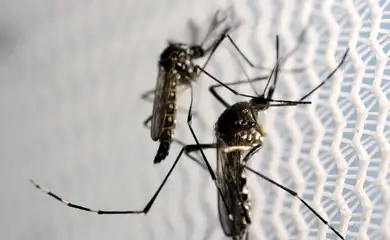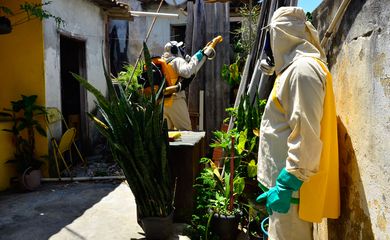Brazilian research detects Zika, chikungunya viruses in mosquito eggs

A study by nine scientists from the Federal University of Goiás (UFG) has detected Aedes aegypti mosquito eggs already carrying the ZIKV virus, which causes Zika, and the CHIKV virus, which causes chikungunya. The result demonstrates the vertical transmission of the virus, when it is passed from adult females to larvae deposited by them. The eggs then hatch and the new mosquitoes are born with the virus.

The study was published in Revista da Sociedade Brasileira de Medicina Tropical LINK 1, under the title Detection of arboviruses in Aedes aegypti through transovarian
analysis: A study in Goiânia, Goiás.
The transmission method discovered for the two infectious diseases is different from the well-known horizontal one, where a mosquito bites an infected human being or animal, becomes contaminated, and therefore capable of contaminating other people through bites.
The conclusion of the study is that the direct transmission to Aedes aegypti eggs, classified as transovarian, without passing through a host, serves as a new warning to health authorities.
In an interview with Agência Brasil, the coordinator of the study, biologist and doctoral student at UFG, Diego Michel Fernandes da Silva, said the discovery that mosquitoes are already born infected is worrying because vertical transmission is an adaptation mechanism that facilitates dispersal to urban areas.
“It’s alarming for public health because we’ve discovered a new transmission mechanism. We knew about horizontal transmission. In this environment, we’ve now found vertical transmission, with the deposit of eggs containing the virus, which transmits this virus directly. [The female] doesn’t need to find a host first,” he explained.
Method
Aedes aegypti eggs and adult mosquitoes were captured in the three major regions of the capital of Goiás—the Northwest, the Southwest, and the North—by health surveillance agents from January to September 2022.
After capture, a total of 1,570 adult females were separated and organized into 157 groups of ten each, with their heads and thoraxes isolated for analysis. The eggs of these females were reared under controlled laboratory conditions until the adult mosquitoes emerged.
Of these, two groups tested positive for CHIKV and one for ZIKV, indicating that the offspring were infected and that these offspring can transmit the virus after birth.
Recommendations
In addition to the study alerting health authorities to the possibility of increased transmission of the two viruses that cause Zika and chikungunya, UFG biologist Diego Michel Fernandes da Silva stressed the need to step up local epidemiological surveillance and look for new mechanisms to prevent and eliminate the mosquito.






